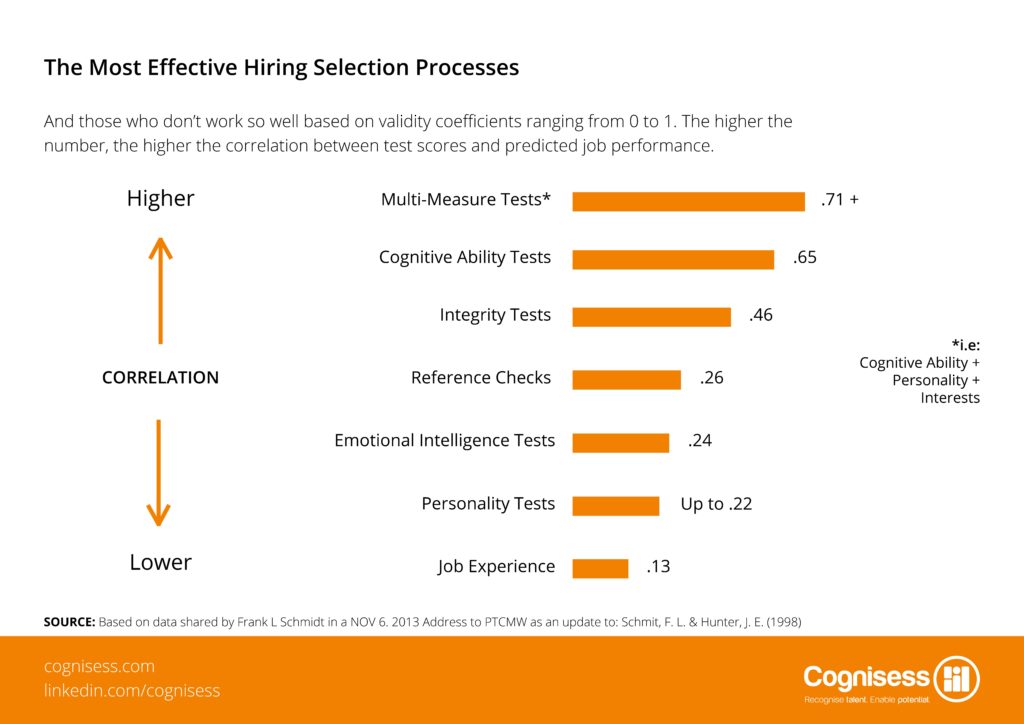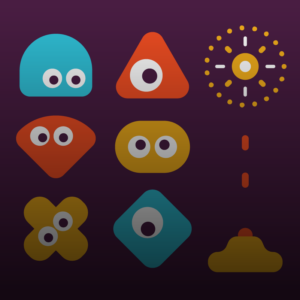More companies are using personality assessments than ever before. NBC News has reported that their usage is increasing by 20% each year. But are they the most effective way to measure and predict job performance?
Below is the results of Frank Schmidt’s meta-analysis based on nearly a century of workplace productivity data.

As you can see, applying personality tests alongside traditional recruitment methods create a less effective process than using a multi-level assessment approach…But why is this the case?
Personality tests are easy to manipulate
Some candidates may try to reverse engineer these assessments in order to impress an assessor. For example, from a list of words a candidate will choose the most favourable ones to describe themselves, instead of what their truly like.
This is damaging to the overall hiring process. HR believes the candidate is someone they’re not and can result in the wrong applicant being hired.
We are constantly changing
A lot of personality tests are based on the four-quadrant personality model. This model is built to assess our states. These are the more fluid parts of our personality, for example, a person may be highly organised at work but is disorganised in their personal life. It is recommended that individuals frequently retake these tests because a person’s context regularly changes. Meaning it can be unreliable to predict a person’s job performance.
So we shouldn’t use personality tests in recruitment?
This depends on how you apply them. A strong recruitment process would include a multi assessment approach that tests a variety of traits, behavioural and cognitive factors. Combining these components make a personality test much more effective. Here are some factors that indicate a strong personality assessment:
- They assess stable traits (instead of states). These are traits that are at the core of our personality, for example, how agreeable you are. Our platform uses the Big 5 Personality Model to measure these stable traits, which is the most reliable and scientifically backed personality model. The personality results are accurate for up to 6 months after they take the assessment.
- They allow you to compare each applicant’s scores. This helps you assess the strongest candidate. For example, with Cognisess Pro you can compare an individual’s score against the general population and identify the top scores in the applicant pool.
- They have an inbuilt ‘lie detector’. This helps detect candidates who are trying to ‘cheat’ by painting themselves in a more favourable light. For example, in our new Lens Pro assessment you can choose between two options which are equally viable instead of two choices where it’s obvious what the ‘correct answer’ is. This helps an employer really get to know an applicant and the values they stand for. The process becomes about their true abilities, not the persona which they think will get them the job.
A 360° recruitment process
Finding the right fit means assessing the whole person. By using a variety of assessments you will accurately understand each applicant’s behaviour, personality and cognitive attributes. Taking the time to understand the potential of your applicant pool will ensure you hire the right person who will thrive in a role.
To get to this outcome you need an effective recruitment process. We have over 60 neuroscience assessments to suit your hiring needs. Please contact us if you would like help crafting a reliable and accurate recruitment process.


